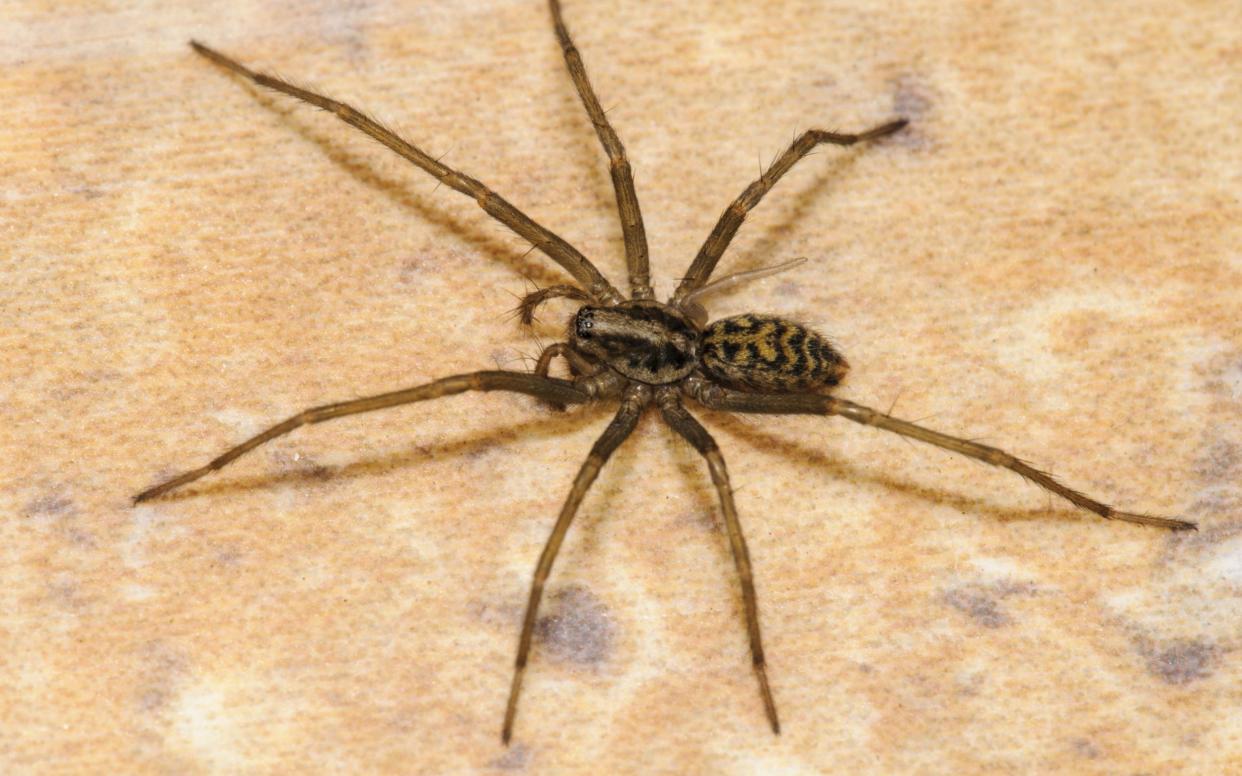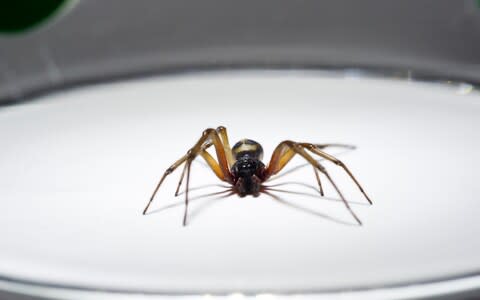Warm, wet summer causes bumper spider season

Spiders are invading homes in bumper numbers due to the warm, wet summer, scientists have said.
This year’s record temperatures, interspersed with heavy rain, has yielded a “lush, green” environment, ideal for the smaller insects that spiders eat.
It means abundant numbers of well-fed arachnids are now roaming people’s homes in search of a mate, according to entomologists at the University of Gloucester.
The team, which has pioneered the use of “Twitter mining”, the technique of systematically trawling social media postings to build an ecological picture, say early indications suggest this year’s “spider season” is busier than that of 2018.
“It certainly looks as if people are getting quite excited by it quite early this year,” said Professor Adam Hart.
“People are saying that they are seeing more than they normally do.”
He advised householders wary of spiders to keep doors and windows shut.
However, this can only prevent outdoor-living spiders getting in, and does nothing to deter house spiders.
“The reality is that house spiders are there already and there’s not that much you can do about them.
“But they love mess, such as piles of clothes, to try to keep things tidy.”
Research by the same team published last year found that 7.35pm was the most active for spiders during the mating season, which runs from just the first or second week of September to the first week of October.
In 2018 there was also a slight peak in sightings at 6–8 am which could reflect morning observations of spiders trapped in sinks or baths overnight.

A reading of 38.7 Celsius taken in Cambridge University Botanic Garden on 25th July was the highest temperature ever recorded last year.
Previously, hot summers have been largely dry, however 2019, the twelfth warmest on record since 1910, was also relatively wet, the seventh wettest overall in the UK.
Scotland had the second wettest summer on record, surpassed only by that of 1985.
A bumper year for spiders usually translates to a good environment for birds, which prey on them.
However, despite the apparent increase in numbers, it is unlikely that spiders this year are bigger than normal, said Professor Hart.
“People always forget that we have some quite large spiders in Britain which it isn’t unusual to see at this time of year, so they tend to post comments saying spiders are getting bigger.”
Roughly eight in 10 of the spiders seen around the house are males, on the hunt for females who are more likely to stay in one place and wait for a potential mate, often found on windowsills or in their webs.
As well as keeping homes vacuumed and tidy, removing any visible webs and filling in gaps between walls, pipes and doors also helps keep spider numbers down.
Of the 650 species of spider in the UK, only 12 can be harmful to humans, such as the false widows, which have been increasing in numbers - mainly in the south of Britain - in recent years.
Most people who have been bitten experience a painful bite followed by some redness, but then no lasting damage, in some cases the bites can trigger a severe allergic reaction.
Sara Goodacre, who founded Nottingham University’s Spider Lab, told BBC 5 Live that spider season should be celebrated.
“Try not to spray insecticides and things you don’t need to spray,” she said.
“Think of this as a food resource for birds in your garden."

 Yahoo News
Yahoo News 
